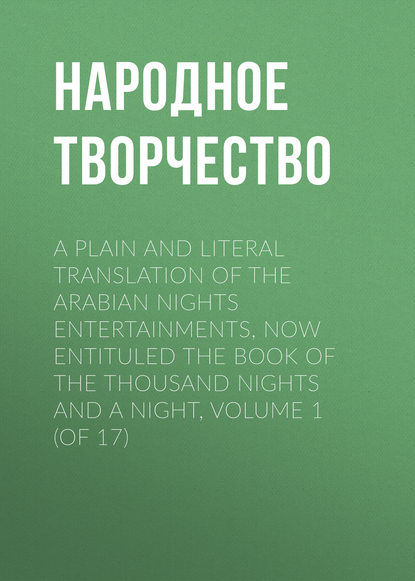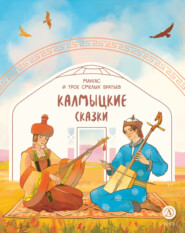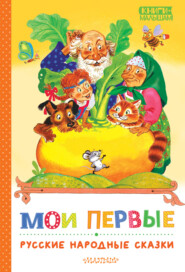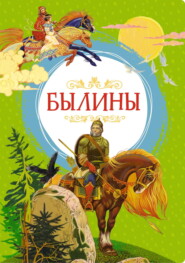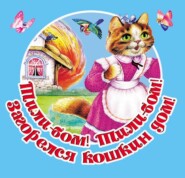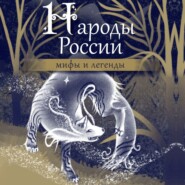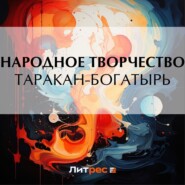По всем вопросам обращайтесь на: info@litportal.ru
(©) 2003-2024.
✖
A plain and literal translation of the Arabian nights entertainments, now entituled The Book of the Thousand Nights and a Night, Volume 1 (of 17)
Настройки чтения
Размер шрифта
Высота строк
Поля
605
The usual "pander-dodge" to get more money.
606
The writer means that the old woman's account was all false, to increase apparent difficulties and pour se faire valoir.
607
Arab. "Yá Khálati"=mother's sister; a familiar address to the old, as uncle or nuncle (father's brother) to a man. The Arabs also hold that as a girl resembles her mother so a boy follows his uncle (mother's brother): hence the address "Ya tayyib al-Khál!"=O thou nephew of a good uncle. I have noted that physically this is often fact.
608
"Ay w' Alláhi," contracted popularly to Aywa, a word in every Moslem mouth and shunned by Christians because against orders Hebrew and Christian. The better educated Turks now eschew that eternal reference to Allah which appears in The Nights and which is still the custom of the vulgar throughout the world of Al-Islam.
609
The "Muzayyin" or barber in the East brings his basin and budget under his arm: he is not content only to shave, he must scrape the forehead, trim the eyebrows, pass the blade lightly over the nose and correct the upper and lower lines of the mustachios, opening the central parting and so forth. He is not a whit less a tattler and a scandalmonger than the old Roman tonsor or Figaro his confrère in Southern Europe. The whole scene of the Barber is admirable, an excellent specimen of Arab humour and not over-caricatured. We all have met him.
610
Abdullah ibn Abbas was a cousin and a companion of the Apostle; also a well-known Commentator on the Koran and conserver of the traditions of Mohammed.
611
I have noticed the antiquity of this father of our sextant, a fragment of which was found in the Palace of Sennacherib. More concerning the "Arstable" (as Chaucer calls it) is given in my "Camoens: his Life and his Lusiads" p. 381.
612
Arab. "Simiyá" to rhyme with Kímiyá (alchemy proper). It is a subordinate branch of the Ilm al-Ruháni which I would translate "Spiritualism," and which is divided into two great branches, "Ilwí or Rahmáni" (the high or related to the Deity) and Siflí or Shaytáni (low, Satanic). To the latter belongs Al-Sahr, magic or the black art proper, gramarye, egromancy, while Al-Simiyá is white magic, electro-biology, a kind of natural and deceptive magic, in which drugs and perfumes exercise an important action. One of its principal branches is the Darb al-Mandal or magic mirror, of which more in a future page. See Boccaccio's Day x. Novel 5.
613
Chapt. iii. 128. See Sale (in loco) for the noble application of this text by the Imam Hasan, son of the Caliph Ali.
614
These proverbs at once remind us of our old friend Sancho Panza and are equally true to nature in the mouth of the Arab and of the Spaniard.
615
Our nurses always carry in the arms: Arabs place the children astraddle upon the hip and when older on the shoulder.
616
Eastern clothes allow this biblical display of sorrow and vexation, which with our European garb would look absurd: we must satisfy ourselves with maltreating our hats.
617
Koran xlviii., 8. It may be observed that according to the Ahádis (sayings of the Prophet) and the Sunnat (sayings and doings of Mahommed), all the hair should be allowed to grow or the whole head be clean shaven. Hence the "Shúshah," or topknot supposed to be left as a handle for drawing the wearer into Paradise; and the Zulf, or side-locks, somewhat like the ringlets of the Polish Jews, are both vain "Bida'at," or innovations, and therefore technically termed "Makrúh," a practice not laudable, neither "Halál" (perfectly lawful) nor "Harám" (forbidden by the law). When boys are first shaved, generally in the second or third year, a tuft is left on the crown and another over the forehead: but this is not the fashion amongst adults. Abu Hanifah, if I am rightly informed, wrote a treatise on the Shushah or long lock growing from the Násiyah (head-poll) which is also a precaution lest the decapitated Moslem's mouth be defiled by an impure hand; and thus it would resemble the chivalry-lock by which the Redskin brave (and even the "cowboy" of better times) facilitated the removal of his own scalp. Possibly the Turks had learned the practice from the Chinese and introduced it into Baghdad (Pilgrimage i., 240). The Badawi plait their locks in Kurún (horns) or Jadáil (ringlets) which are undone only to be washed with the water of the she-camel. The wild Sherifs wear Haffah, long elf-locks hanging down both sides of the throat, and shaved away about a finger's breadth round the forehead and behind the neck (Pilgrimage iii., 35-36). I have elsewhere noted the accroche-cœurs, the "idiot-fringe," etc.
618
Meats are rarely coloured in modern days; but Persian cooks are great adepts in staining rice for the "Puláo" (which we call after its Turkish corruption "pilaff"): it sometimes appears in rainbow-colours, red, yellow and blue; and in India is covered with gold and silver leaf. Europe retains the practice in tinting Pasch (Easter) eggs, the survival of the mundane ovum which was hatched at Easter-tide; and they are dyed red in allusion to the Blood of Redemption.
619
As I have noticed this is a mixture.
620
We say: —
'Tis rare the father in the son we see:
He sometimes rises in the third degree.
621
Arab. "Ballán" i. e. the body-servant: "Ballánah" is a tire-woman.
622
Arab. "Darabukkah" a drum made of wood or earthenware (Lane, M. E., xviii.), and used by all in Egypt.
623
Arab. "Naihah" more generally "Naddábah" Lat. præfica or carina, a hired mourner, the Irish "Keener" at the conclamatio or coronach, where the Hullabaloo, Hulululu or Ululoo showed the survivors' sorrow.
624
These doggrels, which are like our street melodies, are now forgotten and others have taken their place. A few years ago one often heard, "Dus ya lallí" (tread, O my joy) and "Názil il'al-Ganínah" (Down into the garden) and these in due turn become obsolete. Lane (M. E. chapt. xviii.) gives the former e. g.
Tread, O my joy! Tread, O my joy!
Love of my love brings sore annoy,
A chorus to such stanzas as: —
Alexandrian damsels rare! ✿ Daintily o'er the floor ye fare:
Your lips are sweet, are sugar-sweet, ✿ And purfled Cashmere shawls ye wear!
It maybe noted that "humming" is not a favourite practice with Moslems; if one of the company begin, another will say, "Go to the Kahwah" (the coffee-house, the proper music-hall) "and sing there!" I have elsewhere observed their dislike to Al-sifr or whistling.
625
Arab. Khalí'a=worn out, crafty, an outlaw; used like Span. "Perdido."
626
"Zabbál" is the scavenger, lit. a dung-drawer, especially for the use of the Hammam which is heated with the droppings of animals. "Wakkád" (stoker) is the servant who turns the fire. The verses are mere nonsense to suit the Barber's humour.
The usual "pander-dodge" to get more money.
606
The writer means that the old woman's account was all false, to increase apparent difficulties and pour se faire valoir.
607
Arab. "Yá Khálati"=mother's sister; a familiar address to the old, as uncle or nuncle (father's brother) to a man. The Arabs also hold that as a girl resembles her mother so a boy follows his uncle (mother's brother): hence the address "Ya tayyib al-Khál!"=O thou nephew of a good uncle. I have noted that physically this is often fact.
608
"Ay w' Alláhi," contracted popularly to Aywa, a word in every Moslem mouth and shunned by Christians because against orders Hebrew and Christian. The better educated Turks now eschew that eternal reference to Allah which appears in The Nights and which is still the custom of the vulgar throughout the world of Al-Islam.
609
The "Muzayyin" or barber in the East brings his basin and budget under his arm: he is not content only to shave, he must scrape the forehead, trim the eyebrows, pass the blade lightly over the nose and correct the upper and lower lines of the mustachios, opening the central parting and so forth. He is not a whit less a tattler and a scandalmonger than the old Roman tonsor or Figaro his confrère in Southern Europe. The whole scene of the Barber is admirable, an excellent specimen of Arab humour and not over-caricatured. We all have met him.
610
Abdullah ibn Abbas was a cousin and a companion of the Apostle; also a well-known Commentator on the Koran and conserver of the traditions of Mohammed.
611
I have noticed the antiquity of this father of our sextant, a fragment of which was found in the Palace of Sennacherib. More concerning the "Arstable" (as Chaucer calls it) is given in my "Camoens: his Life and his Lusiads" p. 381.
612
Arab. "Simiyá" to rhyme with Kímiyá (alchemy proper). It is a subordinate branch of the Ilm al-Ruháni which I would translate "Spiritualism," and which is divided into two great branches, "Ilwí or Rahmáni" (the high or related to the Deity) and Siflí or Shaytáni (low, Satanic). To the latter belongs Al-Sahr, magic or the black art proper, gramarye, egromancy, while Al-Simiyá is white magic, electro-biology, a kind of natural and deceptive magic, in which drugs and perfumes exercise an important action. One of its principal branches is the Darb al-Mandal or magic mirror, of which more in a future page. See Boccaccio's Day x. Novel 5.
613
Chapt. iii. 128. See Sale (in loco) for the noble application of this text by the Imam Hasan, son of the Caliph Ali.
614
These proverbs at once remind us of our old friend Sancho Panza and are equally true to nature in the mouth of the Arab and of the Spaniard.
615
Our nurses always carry in the arms: Arabs place the children astraddle upon the hip and when older on the shoulder.
616
Eastern clothes allow this biblical display of sorrow and vexation, which with our European garb would look absurd: we must satisfy ourselves with maltreating our hats.
617
Koran xlviii., 8. It may be observed that according to the Ahádis (sayings of the Prophet) and the Sunnat (sayings and doings of Mahommed), all the hair should be allowed to grow or the whole head be clean shaven. Hence the "Shúshah," or topknot supposed to be left as a handle for drawing the wearer into Paradise; and the Zulf, or side-locks, somewhat like the ringlets of the Polish Jews, are both vain "Bida'at," or innovations, and therefore technically termed "Makrúh," a practice not laudable, neither "Halál" (perfectly lawful) nor "Harám" (forbidden by the law). When boys are first shaved, generally in the second or third year, a tuft is left on the crown and another over the forehead: but this is not the fashion amongst adults. Abu Hanifah, if I am rightly informed, wrote a treatise on the Shushah or long lock growing from the Násiyah (head-poll) which is also a precaution lest the decapitated Moslem's mouth be defiled by an impure hand; and thus it would resemble the chivalry-lock by which the Redskin brave (and even the "cowboy" of better times) facilitated the removal of his own scalp. Possibly the Turks had learned the practice from the Chinese and introduced it into Baghdad (Pilgrimage i., 240). The Badawi plait their locks in Kurún (horns) or Jadáil (ringlets) which are undone only to be washed with the water of the she-camel. The wild Sherifs wear Haffah, long elf-locks hanging down both sides of the throat, and shaved away about a finger's breadth round the forehead and behind the neck (Pilgrimage iii., 35-36). I have elsewhere noted the accroche-cœurs, the "idiot-fringe," etc.
618
Meats are rarely coloured in modern days; but Persian cooks are great adepts in staining rice for the "Puláo" (which we call after its Turkish corruption "pilaff"): it sometimes appears in rainbow-colours, red, yellow and blue; and in India is covered with gold and silver leaf. Europe retains the practice in tinting Pasch (Easter) eggs, the survival of the mundane ovum which was hatched at Easter-tide; and they are dyed red in allusion to the Blood of Redemption.
619
As I have noticed this is a mixture.
620
We say: —
'Tis rare the father in the son we see:
He sometimes rises in the third degree.
621
Arab. "Ballán" i. e. the body-servant: "Ballánah" is a tire-woman.
622
Arab. "Darabukkah" a drum made of wood or earthenware (Lane, M. E., xviii.), and used by all in Egypt.
623
Arab. "Naihah" more generally "Naddábah" Lat. præfica or carina, a hired mourner, the Irish "Keener" at the conclamatio or coronach, where the Hullabaloo, Hulululu or Ululoo showed the survivors' sorrow.
624
These doggrels, which are like our street melodies, are now forgotten and others have taken their place. A few years ago one often heard, "Dus ya lallí" (tread, O my joy) and "Názil il'al-Ganínah" (Down into the garden) and these in due turn become obsolete. Lane (M. E. chapt. xviii.) gives the former e. g.
Tread, O my joy! Tread, O my joy!
Love of my love brings sore annoy,
A chorus to such stanzas as: —
Alexandrian damsels rare! ✿ Daintily o'er the floor ye fare:
Your lips are sweet, are sugar-sweet, ✿ And purfled Cashmere shawls ye wear!
It maybe noted that "humming" is not a favourite practice with Moslems; if one of the company begin, another will say, "Go to the Kahwah" (the coffee-house, the proper music-hall) "and sing there!" I have elsewhere observed their dislike to Al-sifr or whistling.
625
Arab. Khalí'a=worn out, crafty, an outlaw; used like Span. "Perdido."
626
"Zabbál" is the scavenger, lit. a dung-drawer, especially for the use of the Hammam which is heated with the droppings of animals. "Wakkád" (stoker) is the servant who turns the fire. The verses are mere nonsense to suit the Barber's humour.





